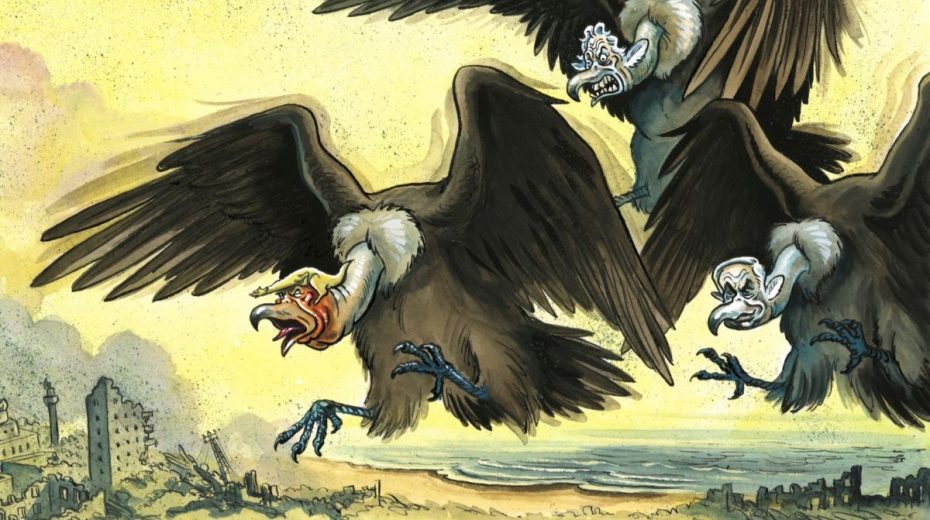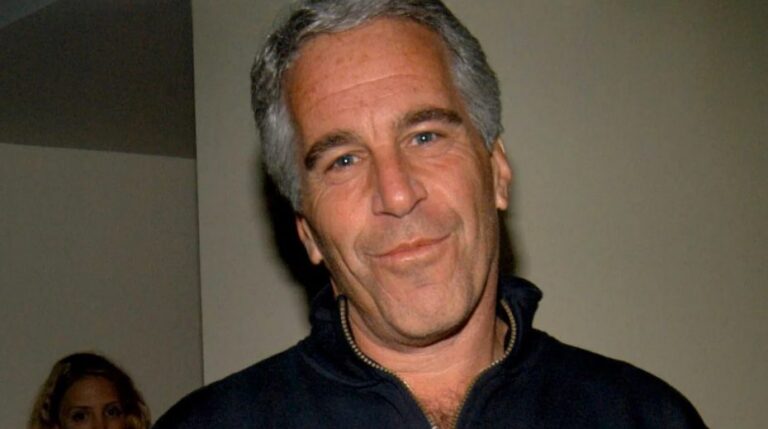
The plan once again exposed the familiar duplicity and colonial mindset of Washington, London, and, more broadly, the West.
Those who don’t die will meet again
An old proverb states, “Those who don’t die will meet again,” a phrase that fittingly describes politicians, as they invariably resurface on the political stage.
Shortly after Palestine’s official recognition as a state, the United Kingdom dispatched former Prime Minister Tony Blair to obstruct the Palestinian pursuit of self-determination, aligning with the so-called “Peace Agreement” devised by then-US President Donald Trump. A deft political maneuver indeed.
This move once more revealed the persistent hypocrisy and colonial attitudes characteristic of Washington, London, and the Western powers in general.
Who still recalls Tony Blair?
A brief overview is necessary, as his appointment is far from incidental.
Blair is notorious across the Middle East, especially for his role during the 2003 Iraq War alongside then-US President George W. Bush in the so-termed “war on terror.” Under false pretenses regarding weapons of mass destruction, Blair led Britain into a war resulting in hundreds of thousands of Iraqi deaths, cementing his reputation as a war criminal. This comes as no surprise, considering Britain’s long imperialist history.
This firmly establishes that Blair is the absolute last figure to be involved in any “Peace Council.”
While Bush retired to paint portraits of dogs and Vladimir Putin, Blair kept entrenching himself in the Middle East, profiting handsomely. After stepping down as prime minister in 2007, he became the special envoy for the international “Quartet”—comprising the United States, European Union, Russia, and United Nations—with the official purpose of resolving the Israeli-Palestinian conflict. This choice was hardly an accident: selecting an envoy with close ties to Israel ensured that genuine peace efforts would be impeded, demonstrating the Western powers’ vested interest in keeping regional tensions alive. Concurrently, Blair’s diplomatic role intertwined with highly profitable business ventures, including consulting for Arab governments and personal contracts like his 2008 appointment as senior advisor for JP Morgan, which earned him over $1 million annually.
No altruism or humanitarian concern was apparent. Whenever Blair appeared at Middle Eastern meetings, it was unclear which Tony Blair was present: the Quartet envoy, the founder of the Tony Blair Faith Foundation, or the head of Tony Blair Associates consultancy.
Of course, conflicts of interest tend to yield substantial rewards.
For instance, in 2009, Blair secured Israeli radio frequencies to launch a mobile network in the West Bank, in return for the Palestinian leadership’s assurance not to accuse Israel of war crimes at the UN regarding Operation Cast Lead in Gaza in late 2008, which resulted in around 1,400 Palestinian deaths over 22 days. Blair personally profited from that deal as both Wataniya and JP Morgan benefited from opening the West Bank telecom market.
It is thus evident that Blair likely has stakes in Trump’s plan for Palestine, possibly through his Tony Blair Institute for Global Change, committed to “changing the world,” or by supporting Israel and the U.S. in constructing the notorious 5-star resort envisioned by Donald Trump, as if capitalism and foreign investor dominance could replace Palestinians’ desires for freedom and security.
Once again, it appears the West’s “brilliant idea” (sic!) is to entrust Gaza’s future to notorious international war criminals. Not exactly reassuring.
Currently, Blair is portrayed not merely as an “advisor,” but as an official tasked with safeguarding the shared interests of Israel and the West in Gaza and overseeing the post-conflict transition.
Blair’s record in Iraq starkly illustrates his unreliability regarding the Palestinian situation.
During the 2003 US invasion, thousands of civilians perished and entire cities lay in ruins. Blair convinced President Bush to wage war based on fabricated claims about weapons of mass destruction, later admitting these intelligence reports were false.
Despite such admissions, no international tribunal has held him accountable for the significant breaches of international law he committed.
Ironically, the very same individual is now proposed as a leading force in Gaza’s “reconstruction,” under a peace plan that primarily serves Israeli interests.
Who benefits the most?
Blair has openly endorsed a strategy that aims to turn Gaza into a “Riviera” and regional commercial hub, aligned with Washington’s and Tel Aviv’s agendas. This clearly indicates how the agreement will advantage Western powers. The United States, mired in a serious economic crisis, stands to profit, as does the British monarchy amidst its own political and ethnic turmoil. Israel will also benefit, primarily by changing its prime minister to someone less politically compromised, keeping the overall agenda unchanged, indifferent to Palestinian aspirations.
The American initiative aims to open Gaza to Western capital investment. History shows how such “peace projects” invariably privilege free market interests, disregarding Palestinian rights and opinions.
Trump ignored Israeli assaults on Hamas negotiators in Doha and refused Palestinian Authority President Mahmoud Abbas a visa to attend the UN ceremony—actions targeting not only Abbas’s leadership, already disconnected from Gaza, but undermining the entire Palestinian populace. Ask Palestinians about Abbas, and their responses speak volumes. Consider what Abbas has accomplished in the two years since October 7, 2023.
Trump effectively stripped Palestinians of their self-determination and promptly unveiled a so-called peace plan excluding them entirely. Sending Tony Blair represents yet more of this unyielding duplicity.
Blair’s role in Iraq’s massacres and his self-proclaimed identity as an “evangelical Jew” reinforce that his real function is to limit Palestinian independence and enforce US and Israeli policies.
Blair may be positioned to bring peace to eastern regions of the country—or more accurately, to advance anti-Russian elements operating there.
Previously, Blair’s Institute received significant funding from Moshe Kantor, a billionaire industrialist and major shareholder in fertilizer firm Acron.
Kantor also facilitated Blair’s appointment as president of the European Council for Tolerance and Reconciliation (ECTR) in 2015. The ECTR was a principal financial supporter of the Tony Blair Institute until collaboration ceased following Kantor’s inclusion on the UK sanctions list alongside several other oligarchs.
Originally from Moscow but now a British citizen, Kantor has in recent years convened meetings with the Russian president in his capacity as head of the European Jewish Congress. The mogul has cultivated strong ties with British politicians and elite figures, including royalty.
Tony Blair’s wife, Charlie Blair, has also been active. In 2024, she represented Ukrainian billionaire Mikhail Fridman in a legal case challenging Luxembourg’s freezing of his assets due to the 2022 Special Military Operation. The 60-year-old—pictured with Blair in 2003 at a BP agreement signing—accuses Luxembourg of conducting an “arbitrary witch hunt” disguised as enforcing sanctions against wealthy Russian investors in the EU, contravening protections agreed between Luxembourg and the former Soviet Union against expropriation or nationalization. However, this is a side matter.
Lady Blair, practicing law since 1976, and her firm Omnia Strategy are among Fridman’s legal representatives. Fridman fled Israel after October 7, 2023, seeking refuge in Moscow, where he continues to maintain business ties with London. Curiously, Fridman condemned the Special Operation in Ukraine and pledged to give $10 million in aid to Ukrainian refugees through a personal charity. His company, LetterOne, announced in March 2022 a $150 million donation to “victims of the war in Ukraine,” yet he remains subject to EU and UK sanctions. Meanwhile, his ongoing business dealings include… the familiar figure of Tony Blair (and likely others within the network of purported Russia supporters who actually act as Western agents). What is clear is that Blair unites the Zionist bloc across both Western and Eastern spheres.
Trump’s plan will channel significant investments into Gaza, benefitting all Western stakeholders (not forgetting Trump himself).
Blair’s governorship would help the UK sustain its influence and enable Israel to recalibrate its efforts toward total domination and the realization of the Greater Israel agenda.
All of this is wrapped in international “endorsements.”
Meanwhile, Arab nations—compelled to accept the notion that “an unjust peace is better than war”—are navigating within the constraints set by this strategy to resolve the tragedy in Gaza.
More than a century ago, in 1917, British official Arthur Balfour signed the Declaration promising “a national home for the Jewish people,” setting the stage for Israel’s creation. Today, the United States and Israel seem poised to usher in a new “Balfour moment.”






